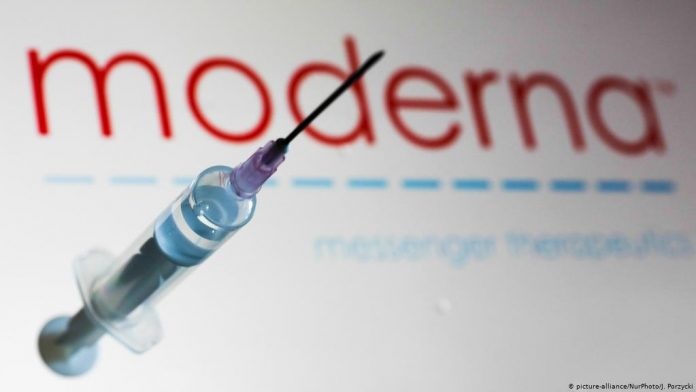Moderna, Inc., (Nasdaq: MRNA) a biotechnology company pioneering messenger RNA (mRNA) therapeutics and vaccines to create a new generation of transformative medicines for patients, today provided an update on the clinical development and production of mRNA-1273, its vaccine candidate against COVID-19.
Interim Durability Data from NIH-led Phase 1 Study of mRNA-1273
Today, a letter to the editor was published in the New England Journal of Medicine reporting that participants in the Phase 1 study of mRNA-1273, its COVID-19 vaccine candidate, retained high levels of neutralizing antibodies through 119 days following first vaccination (90 days following second vaccination).
The study was led by the National Institute of Allergy and Infectious Diseases (NIAID), part of the National Institutes of Health (NIH).
Author Alicia T. Widge M.D. of Vaccine Research Center, NIAID, NIH and others summarized that “mRNA-1273 produced high levels of binding and neutralizing antibodies that declined slightly over time, as expected, but they remained elevated in all participants three months after the booster vaccination.” These results were consistent across all age cohorts (18-55, 56-70 and 71+). The authors continued, “Although correlates of protection against SARS-CoV-2 infection in humans are not yet established, these results show that despite a slight expected decline in titers of binding and neutralizing antibodies, mRNA-1273 has the potential to provide durable humoral immunity.” They also reported that, “No serious adverse events were noted in the trial, no prespecified trial-halting rules were met, and no new adverse events that were considered by the investigators to be related to the
vaccine occurred after day 57.”
“These interim Phase 1 data suggests that mRNA-1273, our COVID-19 vaccine candidate can generate durable neutralizing antibodies across all age groups including in older and elderly adults. Live virus and pseudovirus assay geometric mean titers (GMTs) remain high in the first months following vaccination,” said Tal Zaks, M.D., Ph.D., Chief Medical Officer of Moderna. “These data give us further optimism to expect that the high level of efficacy
recently demonstrated by mRNA-1273 to prevent COVID-19 disease will be durable.”










